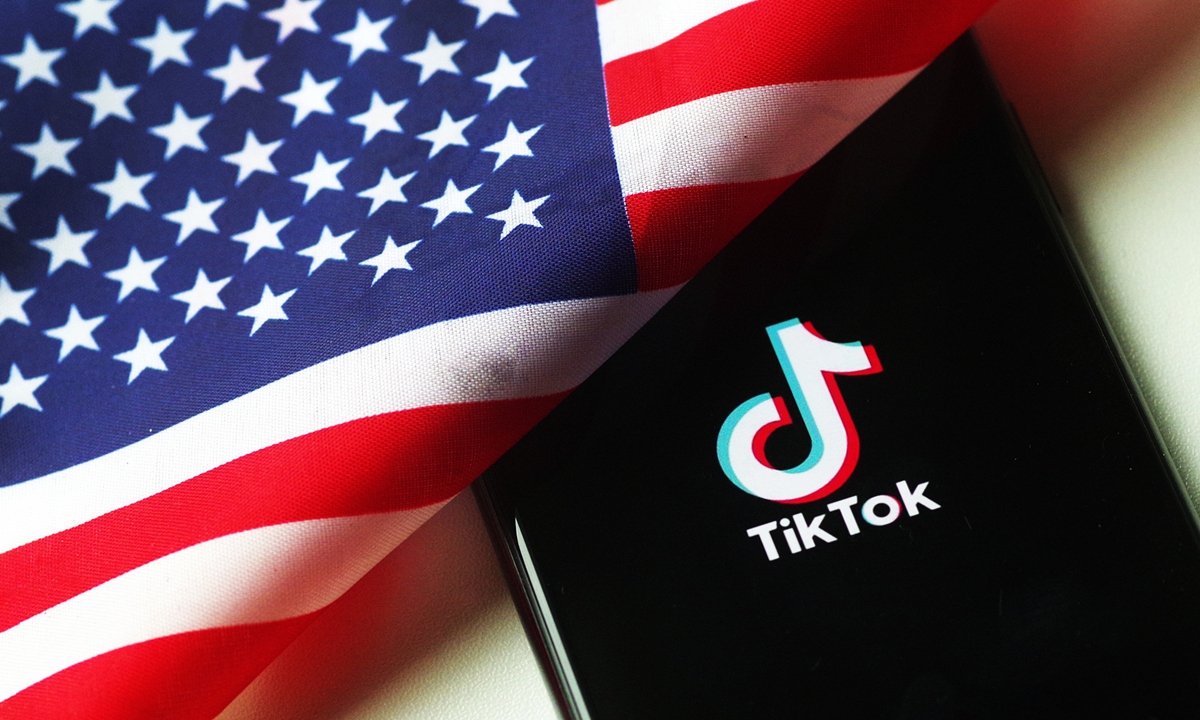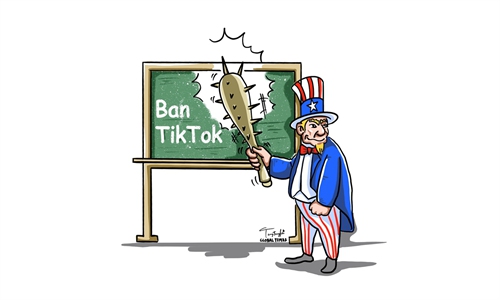
TikTok US Photo: VCG
On November 30, a federal district judge in Montana issued a preliminary injunction calling off the state's ban on TikTok. Montana is the first state in the nation to initiate a ban on TikTok, announced by the state government on May 18 this year to block TikTok completely, with heavy fines for violators.
In the past year or two, there have been constant calls from US lawmakers and some state governments to adopt a blocking policy on TikTok, with several states announcing bans on government devices.
This overturning of the ban on TikTok by the Montana court reflects the inherent contradiction in the US' strategy of whether to identify China as a competitor or an adversary.
If China remains a competitor, then issues like TikTok's entry into the US should be handled in accordance with US law. The Montana court overturned the state's ban because it undermined citizens' "constitutional right" to use TikTok and that TikTok's operation in the US complied with US regulations.
However, if the issue of TikTok is viewed as a matter of national security and in the context of a country with hostile intentions, then it would be a different story. This was the main consideration behind the ban issued by the state government in May this year.
Judging from the textual content of the Montana bill, it explicitly refers to the People's Republic of China as an adversary to the US in the first sentence of the opening paragraph.
Judge Molloy agreed, writing in the injunction, "Montana's legislature and Attorney General were more interested in targeting China's ostensible role in TikTok than with protecting Montana consumers."
We see that in the controversy surrounding TikTok. Some experts and judges are looking at the issue from the level of the rule of law. But when the concept of national security is introduced into the fray, the rule of law is in danger of failing. Once the security issue is raised, it will treat China more as an adversary.
On Saturday, US Commerce Secretary Gina Raimondo made it clear that China is the biggest threat and "not a friend of the United States."
China has been portrayed as politically hostile in the current climate of US public opinion, especially in the political environment represented by the US Congress. Anyone or anything linked to China or with a Chinese background is recognized as involving US security.
Montana Governor Greg Gianforte, after signing the ban last May, stated that it was to safeguard Montana residents' "personal, private, and sensitive data and information from intelligence gathering by the Chinese Communist Party."
It is undeniable that the two great powers, China and the US, have competition in many areas, but if security issues are introduced into the bilateral relationship more, it could lead to a zero-sum game.
There is now a tendency in the US to evolve in this direction. In the recent launch of nearly all US government industrial policies, the decision to disassociate from China is a key measure taken in the name of reducing risk for security reasons. This practice triggers contradictions and its negative effects are also more visible, for example, Montana court's decision to overturn the ban.
Our observation of the future direction of China-US relations cannot be divorced from the observation of how Washington handles such contradictions. This incident profoundly reflects the intertwined interests of China and the US, in which the politicians in Washington will not easily fix China as a competitor rather than an adversary just because they say so.


